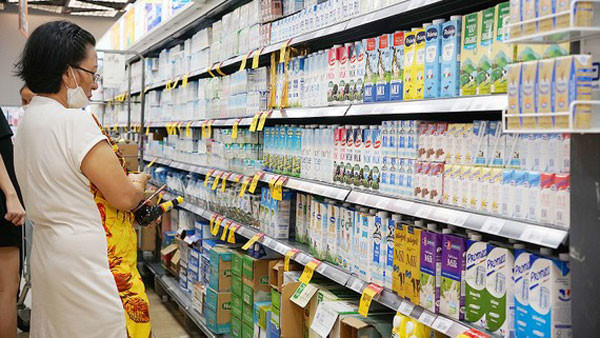
In the report for the second half of the year, FiinGroup assessed that the real estate and basic resources industries are the main cause of the decrease in profit after tax growth rate due to unfavourable business activities, amid regulators are trying to tighten policies to control corporate bond issuance and lending (for residential real estate) and rising raw material prices as well as falling demand (for steel).
Excluding these sectors, profit after tax of the remaining industries continued to post an impressive growth of 64.2 per cent, largely contributed by export-related industries, including chemicals, commodities, food, and industrial services, and benefiting from a rebound in consumer demand post-COVID-19.
FiinGroup said that most of the industries with high growth in the second quarter are expected to slow down in the second half of 2022. Accordingly, chemicals, fisheries, fertilisers, logistics, shipping, garments, and rubber are forecasted to hardly maintain a high growth momentum in the final months due to weak exports and a sharp drop in commodity prices.
The expansion of the personal goods industry will also face challenges, as inflation, while slowing, will continue to have a negative impact on jewellery purchasing power for the rest of the year.
For the information technology sector, inflation and recession risks in major economies, including the US and European countries, can limit global demand for software. This could be a risk to FPT Corporation’s profit growth because the foreign market contributes about 37 per cent of its profit after tax in the second quarter.
In contrast, the industries whose profits dropped sharply in the second quarter have chances to recover. For example, in the dairy industry, the profit margin of dairy enterprises fell to a very low level in the second quarter of 2022 and is expected to improve in the third quarter thanks to the decrease in the price of raw milk. The Global Dairy Trade Index fell 30 per cent from the peak set in March and reached its lowest level since early 2021.
Similarly, livestock companies were negatively affected by the soaring prices of animal feed and the sharp drop in the selling price of live pigs. With corn and soybean meal prices falling greatly, FiinGroup believes the livestock industry’s profit will recover well in the second half of 2022.
There are many other industries that are expected to experience accelerated profits in the second half of 2022, according to the report, including plastic pipe manufacturers, the pharmaceutical industry, and non-financial sectors.
Of which, the sharp correction of plastic resins prices helped plastic pipe producers record a growth of 77 per cent over last year in profit after tax in the second quarter. The prices of plastic resins are expected to continue to go down along with oil price movements in the second half of 2022.
For the pharmaceutical industry, the Ministry of Health re-organises tenders for purchasing drugs and medical supplies after many months of hiatus. This is a positive support for the profit growth of enterprises focusing on distribution through hospital channels (ETC).
Meanwhile, in terms of valuation, the non-financial sector is currently valued at 16.6 times the profit of the last four quarters, down 27.3 per cent from the beginning of the year thanks to the strong decline of 15 per cent in share prices since the beginning of the year. On the other hand, the first six months' profit increased by 37.4 per cent. This valuation is equivalent to the 2011-to-date average but higher than the 2015-2016 average (13.3x) and the period 2011-2012 (12.1x).
The non-financial sector's estimated price per earning ratio (P/E) valuation for 2022 may reach 13.9x based on its expected profit outlook for 2022. In a conservative scenario, FiinGroup believes that the profit after tax in 2022 may rise by 35.6 per cent thanks to high growth in the first half of the year.
The profit after tax growth in the second half of 2022 may reach 32.3 per cent.
Source: Vietnam News